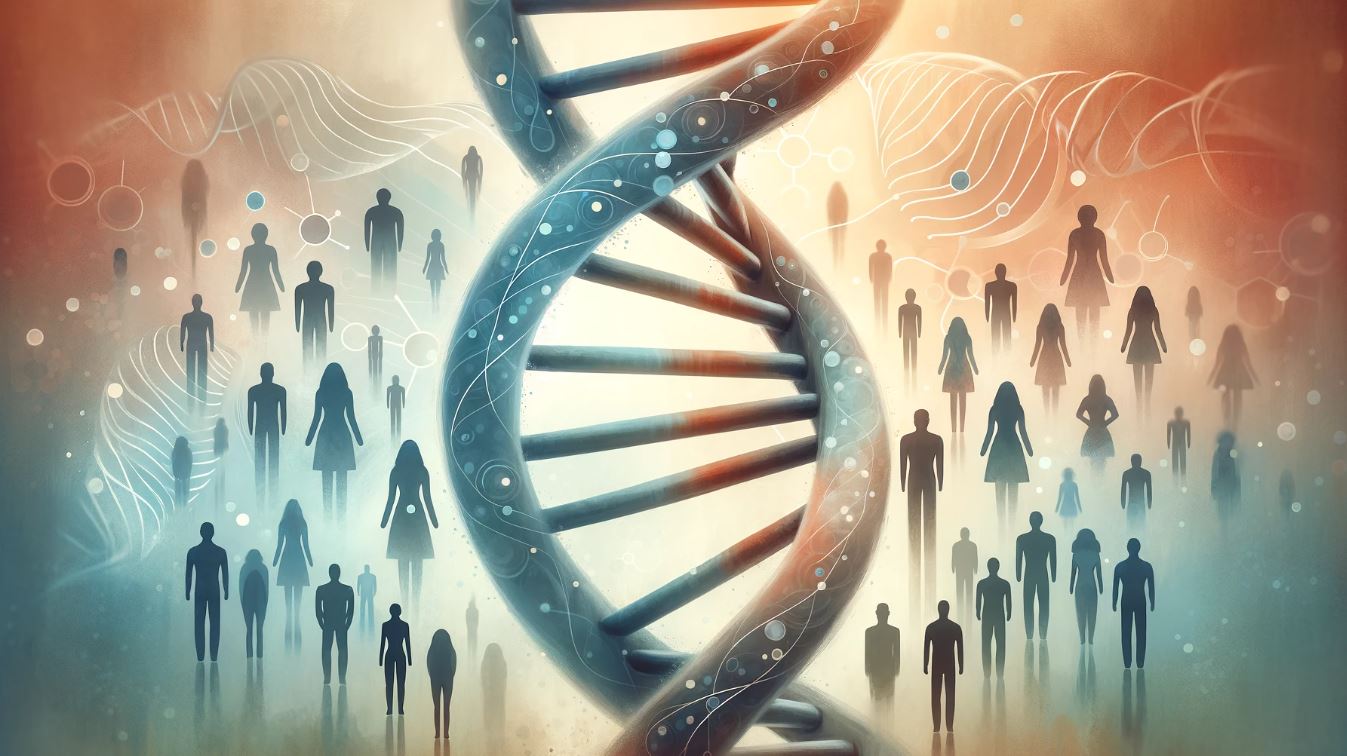Bisexuality May Have Partly Genetic Origins ?
Controversial DNA research links bisexuality to a proclivity for risk, raising both interest and skepticism. The investigation delineates a genetic distinction between bisexuality and other forms of same-sex interaction, sparking debate among scientists over the data’s implications and the risk of stigma. This provocative field of study, delving into the origins of bisexual behavior and exclusive homosexuality, consistently ignites controversy. The latest exploration, disclosed in Science Advances, emerges from an analysis of a vast DNA compendium encompassing approximately 450,000 individuals from the United Kingdom. Researchers postulate that the genetic architecture of bisexual tendencies diverges from that underpinning exclusive same-sex preferences, potentially intertwining with a tendency toward risk-taking. This linkage to risk-taking behaviors may elucidate why men with bisexual histories still sire a considerable number of offspring, though fewer than their heterosexual counterparts, possibly accounting for the genetic persistence of these sexual behaviors.
Diverse Reactions to Bisexuality Research : From Appreciation to Criticism
Responses to the study vary widely. Some experts commend the findings as insightful, while others critique the foundational data. A significant concern is the potential for such research to stigmatize sexual minorities, as linking bisexuality with risk-taking could fuel discrimination and propagate misconceptions about bisexual individuals.
Empirical Findings vs. Moral Implications in Bisexuality Studies
Nonetheless, study co-author Jianzhi Zhang, an evolutionary geneticist at the University of Michigan, asserts that the connection between bisexuality and risk-taking is a mere empirical observation, devoid of moral implications. Zhang advocates for more research into bisexuality and homosexuality, viewing it as a biological question worthy of understanding. From a stark evolutionary perspective, sexual acts not leading to procreation could be deemed inefficient. However, population studies consistently reveal that a notable percentage of individuals engage in same-sex interactions. Twin studies suggest a hereditary element to such behaviors, inviting theories on the evolutionary persistence of same-sex sexual activities.
2019 Study on Genetic Variants and Sexual Behavior : A Precursor to Current Research
In 2019, a significant genome-wide association study (GWAS) involving the UK Biobank and consumer DNA testing service 23andMe identified genetic variants linked to sexual behavior, suggesting a connection to risk-taking and openness to new experiences.
Distinct Genetic Underpinnings of Bisexual and Homosexual Behaviors
Building upon this, Zhang and UM doctoral student Siliang Song conducted a parallel GWAS, with an innovative angle. Prior studies often merged bisexual and exclusively gay behaviors into a single category. Zhang and Song’s inquiry focused on discerning these behaviors at a genetic level. Their analysis of the UK Biobank data, which included questions about sexual partners but not explicit sexual orientation or identity, indicated that genetics accounted for a portion of these behaviors, with environmental factors playing a more significant role.
Their research also examined the evolutionary trade-offs of different sexual behaviors by assessing the reported offspring numbers. Interestingly, they discovered a genetic distinction between bisexual and exclusively homosexual behaviors.
Genetic Correlation Between Bisexual Behavior and Risk-Taking in Men
Delving deeper, they found a genetic correlation between bisexual behavior and risk-taking in men, but not in women, and a link between risk-taking and higher offspring numbers. However, when removing gene variants related to risk-taking, the association between bisexuality and higher offspring numbers vanished.
Controversy and Caution: The Impact of Genetic Studies on LGBTQ+ Communities
Behavioral geneticist Andrea Camperio Ciani notes the study’s silence on the persistence of exclusive gay behavior, given its lower offspring production. Psychologist Michael Bailey and statistician Catherine Saunders express reservations about the study’s reliance on self-reported sexual history. Geneticist Steven Reilly points out potential biases in the UK Biobank data due to historical stigma.
Some fear the study could harm marginalized communities. Robbee Wedow, co-author of the 2019 GWAS paper, cautions against misinterpreting correlational findings, recalling how his earlier research was misconstrued.
Balancing Scientific Inquiry and Social Responsibility in Sexuality Research
Zhang counters, emphasizing the scientific and societal value of controversial studies, while acknowledging the importance of careful communication, especially when discussing findings with the LGBTQ+ community.
Ultimately, Zhang and Song aim to enrich understanding of human sexuality, stressing their work should not be construed as supporting discrimination based on sexual behavior.
Source : https://www.science.org/














+ There are no comments
Add yours